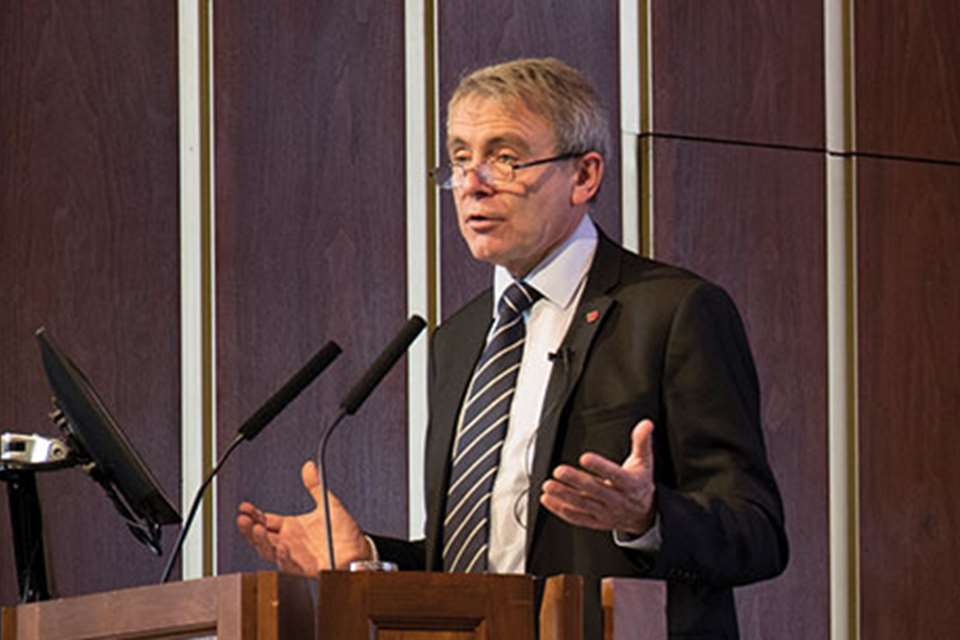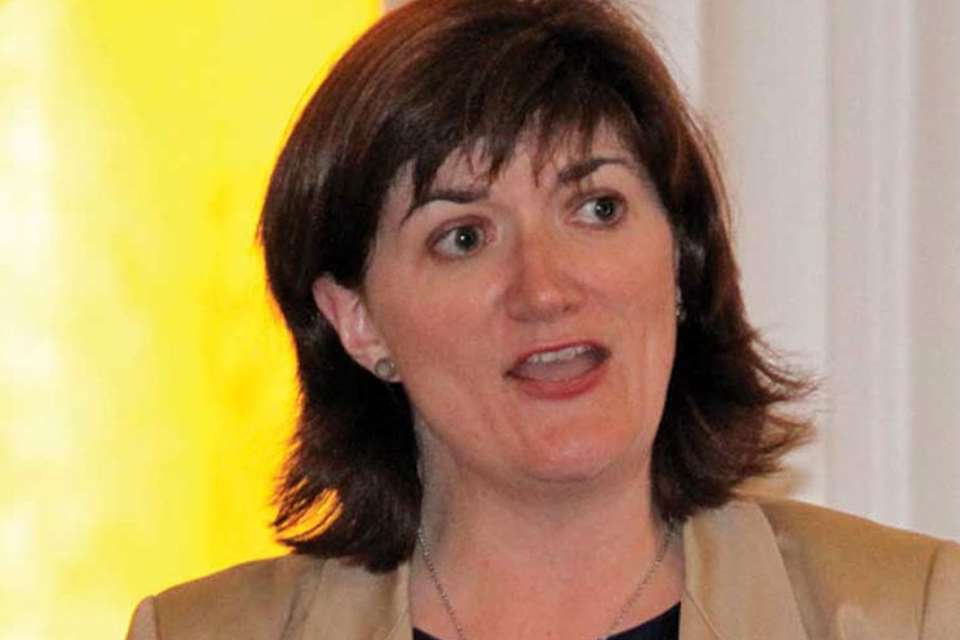Early years sector’s hopes and dreams for the year ahead
Monday, January 8, 2018
Early years organisations, childcare providers and unions share their new year wishes.

 Jennie Johnson, chief executive of Kids Allowed nursery group
Jennie Johnson, chief executive of Kids Allowed nursery group
‘My hopes and dreams are first and foremost that the talent in our sector is fairly rewarded for a great day’s work.
‘Wages are a huge issue and relying on childcare being a “vocation” is underpinned by sexist attitudes. It is no surprise that this attitude prevails in a predominantly female workforce. Would a predominantly male workforce be expected to see their low-paid job as a “vocation”?
‘Addressing this issue would allow us to attract and retain, for the duration of their career, great people, which in turn would improve the experience and outcomes for the children in our care.
‘I would also love to see the “right to play” protected and EYFS extended to older children, rather than academia becoming a pursuit for younger and younger children.’
 Purnima Tanuku, chief executive of National Day Nurseries Association (NDNA)
Purnima Tanuku, chief executive of National Day Nurseries Association (NDNA)
‘Our hope for 2018 is that all children continue to be able to access high-quality, flexible early years learning.
‘But nursery businesses across the UK are struggling to remain sustainable, whether they choose to deliver extended funded hours or not. Costs are being forced up by inflation running at 3.1 per cent, as well as the rises in business rates and national living wage/minimum wage.
‘This is a huge concern, particularly in deprived areas, as funding for next year is stagnating for the vast majority, which is a reduction in real terms. Government must take stock and reverse this situation before more nurseries close their doors.’
 Liz Bayram, chief executive of PACEY
Liz Bayram, chief executive of PACEY
‘My hope is that 2018 is the year Government addresses the shortfall in funding and continued red tape facing providers of funded early education places. Through this, more childminders are encouraged to play a full role in 30 hours delivery. Secondly, that an ambitious plan for early years workforce development is launched, one that helps all practitioners to progress their careers; be fairly rewarded for their skills; and valued for their contribution to the well-being of our youngest children.
‘Finally, an easy win for 2018, that Westminster harmonises at the earliest opportunity the criteria for using childcare provided by relatives, so that parents in England can use related childminders for the early education and childcare entitlements, just as they can for Tax-Free Childcare, childcare vouchers, and the childcare element of Working Tax Credit/Universal Credit – as long as the childminder is registered with Ofsted and the care is being provided outside the child’s home.’
 Lala Manners, director of Active Matters
Lala Manners, director of Active Matters
‘2017 was a year of missed opportunities for early years physical development. We failed to get the chief medical officer’s early years physical activity guidelines embedded in the revised curricular framework, and in reading the recent Ofsted report, Bold Beginnings, you wouldn’t even know that children had bodies, let alone moved.
‘My hopes for 2018 are that the status physical development currently has as a Prime Area is translated into daily practice and provision. That the wealth of learning opportunities children’s bodies and movement provide are acknowledged, valued and acted upon. Also, that the undoubted health benefits physical activity supports are championed by all those who engage with young children in whatever personal or professional capacity.
‘My dream is for the early years community to place children’s physical health and well-being at the centre of policy and practice. If we don’t, all the literacy and numeracy strategies in the world will amount to very little.’
 Nansi Ellis, assistant general secretary of education policy and research at the National Education Union
Nansi Ellis, assistant general secretary of education policy and research at the National Education Union
‘In 2018, I dream that this Government will finally realise that investment in the early years is key to closing educational gaps and improving lives. We need funded commitments to support families from before babies are born so that children have the very best start in life – healthy, well-fed, in secure housing and with places to meet other children and families.
‘I hope for a well-qualified, well-paid professional workforce so nurseries and schools can provide high-quality play-based learning where all children will thrive. And I hope plans for baseline testing don’t go ahead.’
 Jean Carwood-Edwards, chief executive of Early Years Scotland
Jean Carwood-Edwards, chief executive of Early Years Scotland
‘Workforce issues remain key, and throughout 2018 we will continue to support vigorously the Scottish Government’s campaign to enlist up to 11,000 new recruits into early learning and childcare (ELC) by 2020. To this end, we are holding our first early years careers drop-in event in Glasgow on 1 February. We also look forward in 2018 to the new EYS Professional Learning Academy becoming established as the early years centre of excellence for the professional development of the ELC workforce across Scotland.
‘Of course, we need a high-quality workforce if we are to realise our dream of giving every child every chance to live happy, healthy and meaningful lives. We hope that the pertinent social, educational, political and economic decisions taken at all levels of government in the coming year recognise the critical importance of investing in children at the earliest stages of their lives to make that dream a reality.’
 Deborah Lawson, general secretary of trade union Voice
Deborah Lawson, general secretary of trade union Voice
‘I have three hopes for the year ahead which I believe would address the three fears that dominated the sector in 2017: recruitment/retention, funding and pressure of work.
‘My first is for the workforce – that the profession is valued and invested in, with a robust career structure supported by a national pay and conditions system that reflects the true value of early years professionals.
‘My second hope is for proper funding for the 30 hours of free childcare entitlement, to support the first hope.
‘My third hope is that the needs of children are prioritised over the requirements of the Government’s high-stakes data collection system. If a baseline assessment is necessary, it must be in the best interest of children and not add to staff workload.
‘The profession must be listened to during the consultation process, which should be comprehensive and rigorous.’
 Neil Leitch, chief executive of the Pre-school Learning Alliance
Neil Leitch, chief executive of the Pre-school Learning Alliance
‘With provider delivery costs set to rise next year, I’m sure everyone in the early years sector will be wishing for the same thing from 2018: for the Government to start listening to providers and increase funding.
‘Many providers are already reported to have closed as a result of the 30 hours, while many more are struggling to stay afloat and often forced to rely on parents to subsidise supposedly “free” childcare. The Government knows this is neither fair nor sustainable and the harsh reality is that without urgent action, the viability of the entire sector could be put at risk.
‘Just as concerning is the growing trend towards the schoolification of the early years. We know early years education is not just about numeracy and literacy, nor is it simply a preparation for Key Stage 1 – it’s about equipping children with the broad range of skills and love of learning they need to flourish throughout their educational journeys. As such, I hope in 2018 we will see a move away from the concerning rhetoric of recent months and back towards a child-focused, age-appropriate approach to early learning.’
 Jo Morris, Champagne Nurseries, Lemonade Funding
Jo Morris, Champagne Nurseries, Lemonade Funding
‘2018 looks set to be another year of highs and lows for the sector. By the end of last year, 94 per cent of providers were Good or Outstanding; that’s amazing, especially given that 2017 saw the game-changing introduction of 30 hours’ “free” childcare.
‘CNLF campaigned throughout 2017 because these hours are not free. Our hopes for 2018 are that the Government carries out the promised independent evaluation of the roll-out, recognises the problems we’re facing and changes the overly restrictive legislation.
‘We hope to see an end to the average two settings a week that are closing and the large numbers of childminders who are resigning their registrations.
‘We’ll continue campaigning, lobbying, meeting with MPs, the DfE and anyone who can help us get these legislative changes, and hope 2018 brings some much-needed stability for the sector.’









